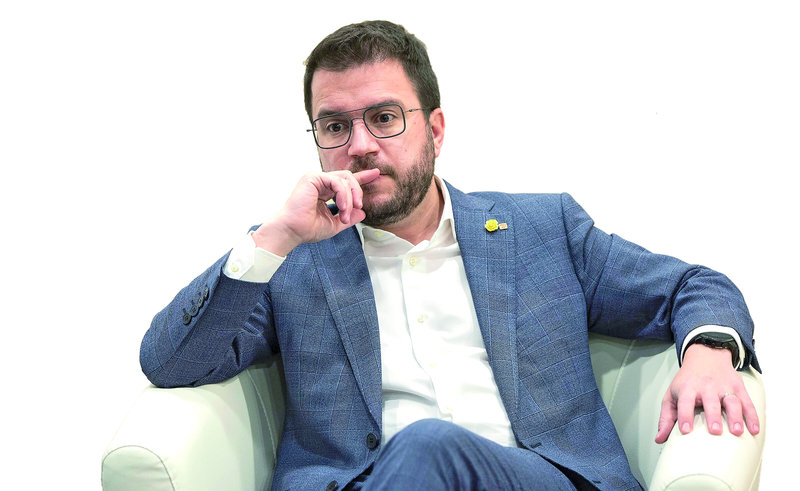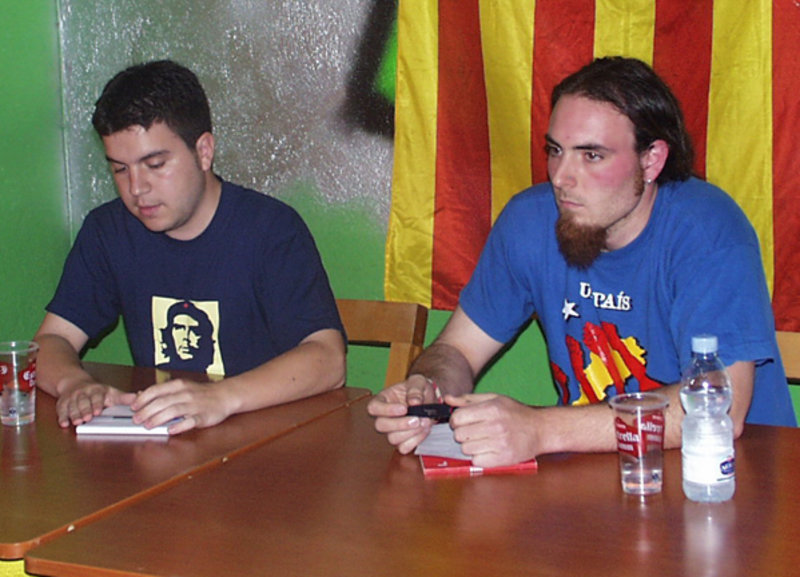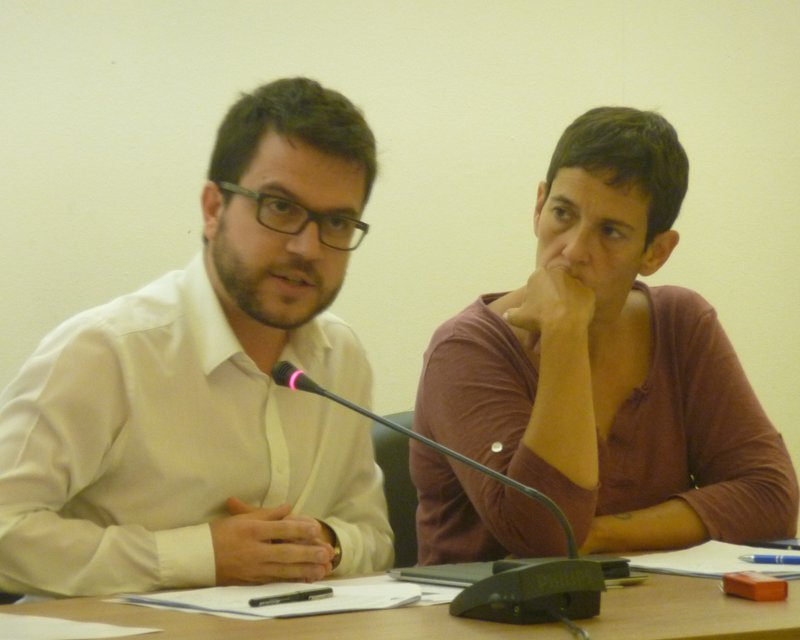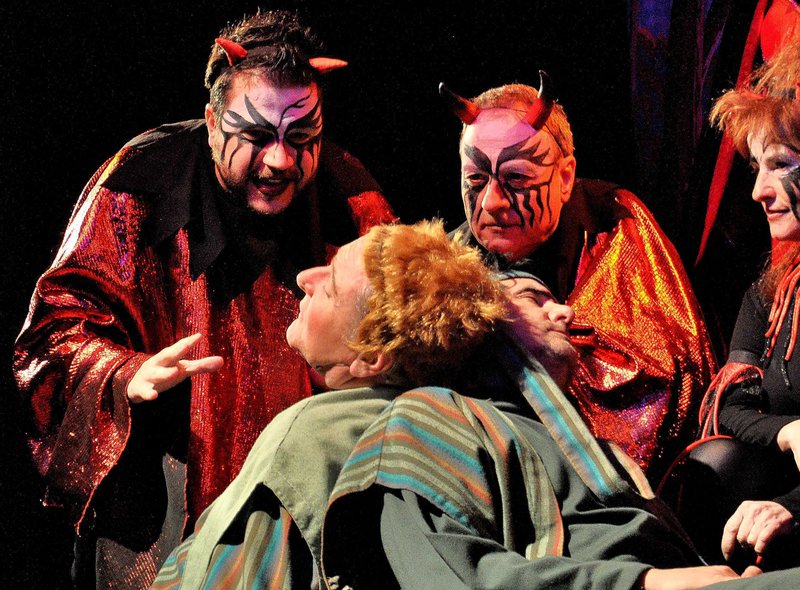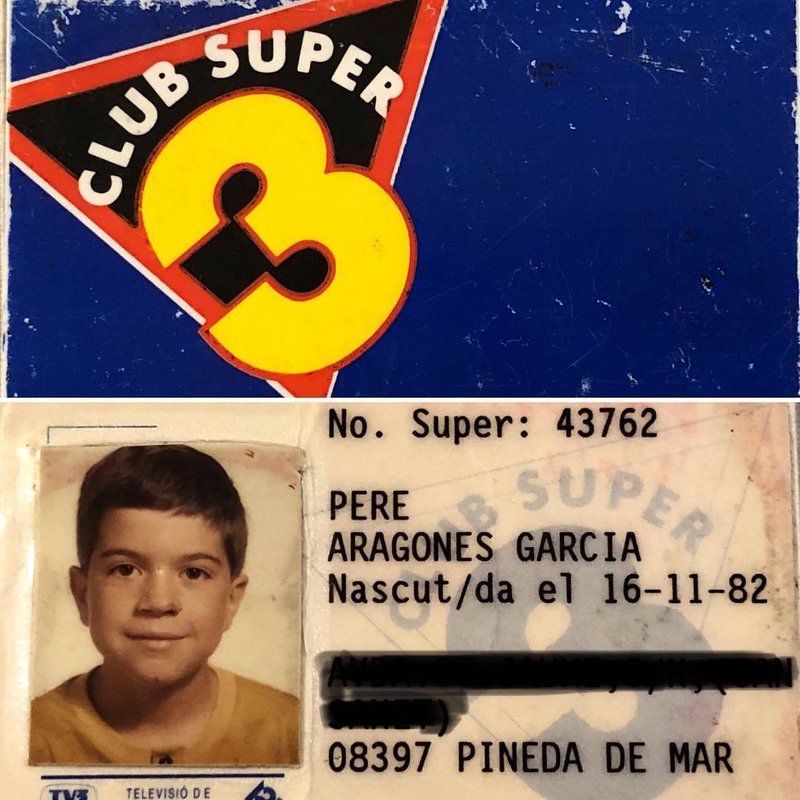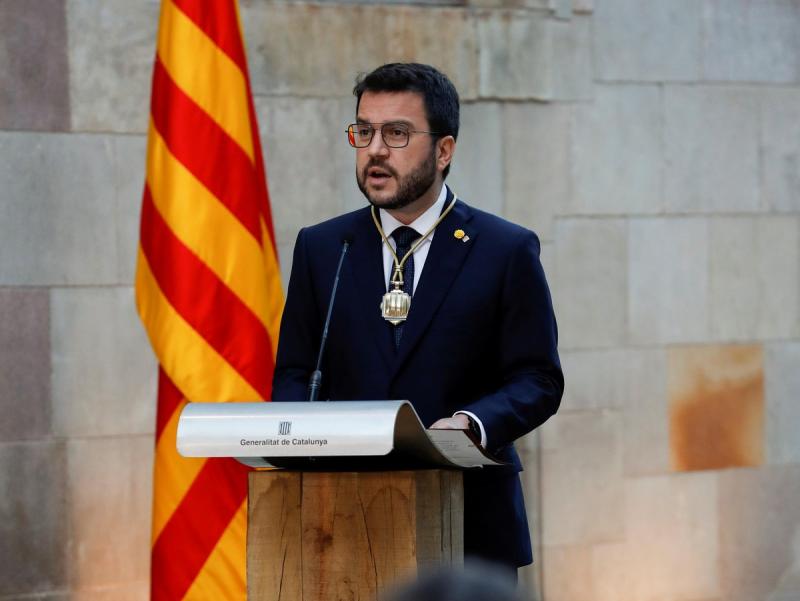PERE ARAGONÈS
132nd PRESIDENT OF CATALONIA
The PATIENT man
politics
Reserved, rational, discreet, a good speaker, attentive, polite, kind, methodical, orderly, analytical, sensible, hardworking, a great negotiator, ambitious... on May 23 Republican Pere Aragonès (Pineda de Mar, 1982) became the 132nd President of the Generalitat with the support of the three pro-independence parties. Against all odds, the last obstacles were finally overcome and the pact between ERC and JuntsxCat was sealed, meaning they will form a government with CUP. All three parties have ended up committing to the interests of a country crying out for political stability in the face of a future laden with challenges.
A secondary public figure among the ranks of ERC until only very recently, Aragonès has been like the ant from the Aesop’s fable, forging, on his own merits and with the help of some unusual political circumstances, a trajectory that endorses him both inside and especially outside his own party. Being the right-hand man to Oriol Junqueras and confidante of the Republican leader since his entry into prison has proved a boon to Aragonés’ career, forcing him to take a step forward and lead the party. The fact is that the new president, who will turn 38 on November 16, is the youngest of the modern era, even if he does have over 20 years of experience in politics.
Aragonès was born into a wealthy family in the coastal town of Pineda de Mar. His grandfather Josep Aragonès was the last mayor of the Franco era, as well as being a textile businessman and one of the first hoteliers in the area, having constructed the Hotel Taurus, a macrocomplex with more than 300 rooms that was at one point the largest tourist establishment in Spain. An accident during its construction in 1963 killed some 20 workers, leaving a stain on the family history book. Mayor Aragonés had two children, Pere’s father, also Pere, and Enric. The former also followed the call of public life and was an independent candidate on the CiU party lists between 1991 and 1995. He was an entrepreneur, but the textile crisis of 2002 led him to close the family’s flagship factory, which had 235 employees. A Mercadona supermarket fills that space today. But the family past and political future comes from still further afield. One of his great-grandfathers was an ERC town councillor and member of the Socialist Union in Pineda during the Republic, while another was a PSUC councillor in Calella, near Pineda.
A “strange” child
Aragonès himself admits that from an early age he was not interested in the same topics as his classmates at the Christian school Mare de Déu del Roser, the town’s only private school. He recalls being viewed as the “strange” boy, because his tastes were far from those of other boys, like sports. History and, as one would expect, political books were soon added to his fondness for Tintin comics. Some of his relatives speak of his early attraction to the world of politics. “During dinners, when the plates were taken away and it was the time for conversation, he’d always be there, watching and listening.” The latter, listening, is precisely one of the great virtues that both his political admirers and detractors acknowledge in him. The former see it as the great virtue of an individual who must govern a country as diverse as Catalonia; the latter accept that it is a good strategy when it comes to controversial issues and not wanting to show your cards too early. Either way, Pere Aragonès has himself acknowledged on more than one occasion that he is not a man for making judgements without having all the information, which adds caution to his list of attributes.
The lack of charisma and aura of heroism that has surrounded pro-independence leaders over the past five years is one of the most common criticisms also levelled at him. It is often said that he is a great professional and a better background manager who has been forced to lead the party in a scenario where prison and exile have been forced upon the natural candidates. However, those who know him well do not agree. They admit that, as a good party man, Pere Aragonès has accepted his new responsibilities, adding that circumstance has only brought forward an inevitable future. “I was convinced that he’d go far, that he’d take on positions of great responsibility, because he’s qualified to do so and won’t shy away from responsibilities,” says another friend. As for religion, he defines himself as an atheist and had a civil wedding.
JERC, the beginning
At the age of 16, he joined the ranks of the Joventuts d’Esquerra Republicana de Catalunya (JERC – the youth wing of the Republican left), where he occupied different roles before becoming its national spokesperson in 2003. He was 23 and it was the era of long sideburns, a raised fist, a Palestinian scarf and brazen speeches. Young Pere did not miss any demonstration against the Spanish Constitution, the word “independence” forming part of his daily discourse, and as the head of the youth branch he came into direct contact with ERC leaders. As he climbed the ladder of responsibilities and witnessed strong divisions within the party, it became clear to him that dirty laundry should never be washed in public, and he made discretion one of his bywords.
Parallel to his political activity, Aragonès has a Law degree from the Universitat Oberta de Catalunya (UOC), a Master’s degree in Economic History from the Universitat de Barcelona (UB) and studies in public policy for economic development from the Harvard Kennedy School, belonging to the prestigious Harvard University. Professionally, he has worked as a researcher at the Ignasi Villalonga Institute of Economics and Business and as an associate professor at the University of Perpignan.
Over the years, activism on the streets and in youth institutions led to a political strategy that brought him to parliament as a representative of the JERC in 2006, of which he remained national spokesperson until 2007. He soon felt at home and was re-elected in 2010 and 2012. In this second term, he became deputy spokesperson of the ERC parliamentary group and spokesperson of the party’s Economics, Finance and Budget committee.
Local politics
Aragonès mainly involved himself in politics outside his home town of Pineda in his early years. Although his family is well known locally and his name has an obvious electoral appeal, he did not make a firm commitment to local politics until 2011, when he was approached by the local ERC branch to lead the candidacy, despite this meaning he would have to combine his work on the town council with his work as a Member of Parliament. His much broader vision brought with it major change, as witnessed in an interview from March 2011: “We believe that what is missing is a medium and long-term vision of what we want Pineda to be. Imagine what a municipality should look like in 20 years’ time, one that has the potential to become the capital of Alt Maresme. We do not want a Pineda that has become a dormitory suburb of the metropolitan area,” the then candidate said. Local voters rewarded him by doubling the number of ERC councillors.
Aragonés was one of the first and main promoters of the now so well known, and so widely criticised, concept of the “broad path”. He had the chance to launch it and see its positive effects for himself during his time as town councillor. The concept was presented as Junts per Pineda (Together for Pineda). The goal? To unite people who, although not in agreement with the entire Republican ideology, felt comfortable with and represented in joint proposals. It brought together a handful of independent candidates, some from CiU and others from PSC. Many see this as a first attempt to join together common interests, and the embryo for what has become ERC’s motto in recent times: “A broad path with room for all, avoiding sterile confrontation with the Spanish State and putting itself at the service of the citizenry.” When Aragonés ran again as a candidate in 2015, ERC won five seats and became the second largest party in the municipality. The formula was working.
Aragonès makes no secret of the fact that he would have liked to have been mayor because of the contact with the people. Faced with the distant image that seems to contradict this desire for proximity, the new president says he feels very comfortable sharing proposals and projects with people. “Pere is one of the few people capable of transforming the country, rebuilding bridges and making Catalonia a Republic,” explains Mònica Palacín, a Pineda councillor and Member of Parliament, who also insists on highlighting one of his main qualities: the ability to manage the diversity of the party and the country. Others confirm the need to try to understand his reasoning and not just see the outer layer. “He’s not someone who kisses kids and grandparents during an election, but when he stops to talk to people, he does it to really listen to them,” they say. Rationality in the face of emotion, an emotional distance that some link to intellectual superiority, has been the stone in Aragonès’ shoe, and his political opponents have tried to take advantage of it, although with little success.
Two sides to the coin
During the 1-O independence vote in 2017, Aragonès could be found forming a human chain to protect one of the polling stations with other citizens of Pineda. And 1-O left its mark on him both professionally and personally, following the arrest and subsequent imprisonment of most of the Catalan government and the exile of the rest. He acknowledges that the Supreme Court ruling hit him hard. Following the disbanding of the government and imposition of the 21-D elections, he found his responsibilities increased, becoming Vice President of the Generalitat in June 2018. Then, after president Quim Torra’s disqualification from office in September last year, he became acting president, although with limited functions.
The new president has also tasted the darker side of public service due to the occasional public mis-step being used by both political rivals and government allies. Possibly the most famous was his attending the wedding of the daughter of a well-known banker, where several pro-independence leaders found themselves alongside former Spanish PM José Luis Rodríguez Zapatero, President Artur Mas and leading Catalan and Spanish businesspeople. Such mixing of political and economic interests is not always viewed favourably, and it generated suspicion among the more radical sectors of the pro-independence movement. They linked it to the State’s favourable treatment of Pere Aragonès in September 2017, when any movement of the Catalan government was being viewed under a magnifying glass during the tense weeks leading up to the independence vote. This treatment manifested itself in the Civil Guard entering different departments of the Generalitat, including Aragonès’ Department of Economy and Finance, and detaining the Secretary General of the Vice Presidency, Josep Maria Jové, and the Secretary of Finance, Lluís Salvador, but not arresting Aragonès. As he explains, this was because the ERC leadership wanted to keep someone in place in case the State incarcerated all of the leaders, which is what ended up happening. Party leader Oriol Junqueras informed him that he must remain uninvolved in case he needed to take on new responsibilities. Subsequently, Aragonés became the subject of police investigations into financing the vote, but things were not taken any further, leading to some suspicion over his ties with Spanish political and business interests.
Husband, father and cook
The more personal and private side of Pere Aragonès remained hidden or, rather, little publicised, as he gradually assumed leadership of the party. His posts – first as finance minister, then as national coordinator of ERC, and later as vice president and acting president – have required him to take greater control over his public image, especially on social media. Any message or image goes through a filtering process to avoid biased or malicious interpretation. But it is precisely on Instagram where we can find subtle glimpses of the man. Aragonès has uploaded images of events and the people he is closest to, including his wife, Janina Juli, and his daughter, Claudia, who is two years old. He does his best to get home on time every day and is one of the few well-known politicians to have taken paternity leave, a decision that demonstrates his will to bring equality to domestic roles.
Aragonés compensates for the long working days with a hobby that he is passionate about, cooking, which he complements with caring for his garden, a passion he shares with his father. His love of cooking comes from his grandmother, and there are many images of him making all kinds of dishes on the social media. Although he usually opts for the more traditional Catalan cuisine, it is not uncommon to see him trying new dishes to surprise his guests... personal traits that could be a sign of his future influence on Catalan politics?
politics

